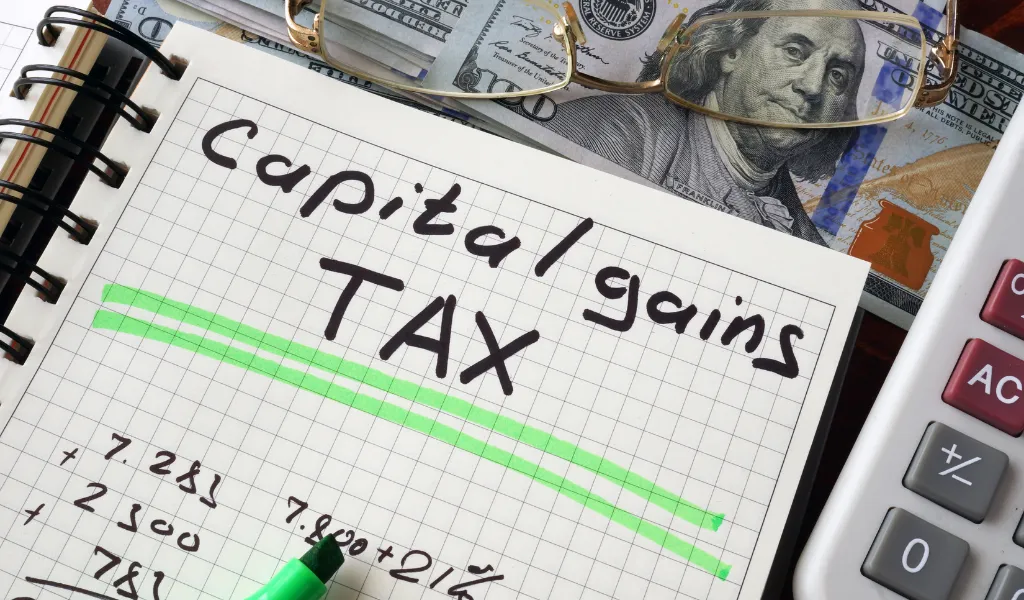As the director of a limited company, it depends on its circumstances, whether closing it is simple or complex. Perhaps you are liquidating because your company cannot pay its bills, meaning it is insolvent. Or maybe you decided to close the company despite it paying its bills. In which case, it is solvent. Both situations require different processes to wind up your company. Therefore, you should fully comprehend the various ways to dissolve a limited company. This guide will answer all your questions, starting from: how do you close a limited company?
First, let’s discuss the definition of a limited company. Then, we can move on to more complicated matters.
What is a Limited Company?
A business structure with a separate financial and legal entity from the people running it is called a limited company. The people running it are the company’s directors. The company has a limited liability, which is a major benefit. This means that in case your business fails, your only liability is for the face value of your share. Your personal assets are under protection.
A Limited Company has the following:
- Directors (A minimum of one).
- Own bank account.
- Registration at Companies House.
Furthermore, it pays its own kind of tax. You can buy or sell it in the form of shares.

How Do You Close a Limited Company in the UK?
When you decide to wind up your limited company, you must approach Companies House. They will wind up and strike it off the register. The method you can use to dissolve your company depends on whether it is solvent or insolvent. A solvent company can pay its bills and an insolvent company cannot.
Solvent companies have the option to apply to Companies House to have them voluntarily struck off the register. The process of members’ voluntary liquidation is an alternative.
Whereas if your company is insolvent, then it must wind up through a creditors’ voluntary liquidation process. The directors of the company can propose this. However, this process requires a minimum of 75% of the shareholders to vote in favour of the closure of the company. They must pass a winding-up resolution.
HMRC or creditors can force an insolvent company into liquidation through a compulsory liquidation.
Following are the various ways to wind up your limited company:
Striking Off a Solvent Company
The simplest method to liquidate a limited company is through completing and submitting a ‘striking-off’ application to Companies House. To qualify for this liquidation process, the company must meet the following criteria:
- The company did not change its name within the last three months.
- Within the last three months, the company did not trade or carry on any kind of business.
- There are no current or proposed legal proceedings to which the company is subject.
- The company did not make a disposal for the value of rights or property.
If the company is eligible, then the next step is to complete Companies House Form DS01. Majority of the directors must sign this form and send it to Companies House by post or online. There is a £10 filing fee. Then, how do you close a limited company?
All notifiable parties should receive copies of the application within seven days of its submission. Following are the notifiable parties:
- Shareholders of the company.
- Pension managers.
- Employees.
- Other directors.
- Creditors.
- Whoever, within seven days of the application’s submission, becomes a notifiable party.
The Companies House will display this information on the public register if it is satisfied with it. To confirm your intention to liquidate the company, a notice will be published in the Gazette. It is issued according to the Companies House jurisdiction in which your company is registered, in Edinburgh, Belfast, or London.
This official notice gives third parties the opportunity to object to the proposed striking off. If there are no objections within the three-month period, then Companies House will publish a second notice in the Gazette. This notice will confirm that the company is now wound up and struck off the register. Then, how do you close a limited company?
Members’ Voluntary Liquidation of a Solvent Company
A solvent company that meets the criteria for the ‘striking off’ application has the option for members’ voluntary liquidation. To go through with this process, the directors must make a declaration. They must state that their company can fully pay the debts it owes within 12 months from the beginning of the liquidation process. It is necessary to take the following steps:
For the companies that are registered in Wales and England, it is a requirement to make a Declaration of Solvency. Whereas for those registered in Scotland, it is mandatory to request Form 4.25 from the ‘Accountant in Bankruptcy’.
The directors must propose a special resolution to voluntarily liquidate the company within 5 weeks. For this, it is a requirement to have a minimum of 75% majority vote. Within 14 days of passing the special resolution, they should publish a notice in the Gazette.
To manage the liquidation process and take control of the business, they should appoint a liquidator. Within two weeks of getting appointed, the liquidator should submit Form LQ01 to Companies House. Yet, how do you close a limited company?
The insolvency practitioner will arrange a general meeting of the members and creditors after the completion of the winding-up process. During this final meeting, presentation of a full progress report of the liquidation will take place. At least one month before this meeting, a notice for it must appear in the Gazette.
After this, they need to send the progress report to Companies House within one week. Also, they must file a Return of Final Meeting. It will take almost three months for the company to dissolve after the filing of the progress report and the Return of Final Meeting. However, this is not the case if the court makes an order to defer the dissolution.
Creditors’ Voluntary Liquidation of an Insolvent Company
If you want to close your company when it cannot pay its bills, then you require a creditors’ voluntary liquidation. To initiate the process of liquidation, a director must arrange a general meeting for the shareholders. Then, it is necessary to pass a special resolution of the shareholders. After this, the director or directors must perform the following duties:
- Appointing a liquidator to manage the liquidation and take control of the company.
- Within 15 days of the meeting, sending the resolution to the Companies House.
- Advertising the liquidation of the company in the right Gazette, i.e., Edinburgh, Belfast, London.
Within 14 days of passing the shareholder’s resolution, the company must hold a creditors’ meeting. It is necessary that the creditors get a minimum of 7 days’ notice of this meeting. Also, advertising it in the Gazette is essential. During the creditors’ meeting, it is compulsory to present a Statement of Affairs. This is a summary of the assets and liabilities of the company. The liquidator should receive a copy of this statement.
After converting all assets to cash and paying the creditors in order of priority, the liquidation process ends. Within around three months of the liquidator holding a final meeting, they will strike off the company from the register. Although, how do you close a limited company?
Compulsory Liquidation by HMRC or Creditors
When your company fails to pay its bills and you and your creditors disagree, then they can go to court. They will apply to the court for the issuance of a winding-up petition. After this, your company will go into liquidation. If there are any assets, then the liquidator will sell them.
You should get professional advice immediately if you are facing any insolvency issues.
How Long Does It Take to Wind-Up a Limited Company?
To dissolve a company, it usually takes a minimum of three months, starting from the winding-up notice in the Gazette. However, if the process is complex, then it can vary accordingly.
What are the Costs of Closing a Limited Company in the UK?
Not only do you have to pay outstanding debts, but there are also plenty of administrative costs to bear when closing your company. The cost depends on how you are going to dissolve your company. Following are the costs of the various dissolving methods:
Cost of Striking Off a Solvent Company
This is the least expense way to close a company. You simply need to pay a £10 disbursement fee to Companies House when you submit the striking-off application. Then, how do you close a limited company?
Cost of Members’ Voluntary Liquidation
In this case, you need to pay the liquidator’s fee. Usually, this fee ranges from £1500 plus VAT and upward. The complexity of the liquidation process determines the total cost you must pay. Most liquidators have a fixed price for the services they offer. Additionally, advertising the liquidation of your company requires paying a fee to the Gazette.
Cost of Creditors’ Voluntary Liquidation
This method of dissolving your company will cost you the most. The amount of work needed and the complexity of the process determine the fee of the liquidator. Usually, this fee can range from £3000 to £7000. In case the company’s assets cannot cover these fees, then the directors are liable to pay them.
Cost of Compulsory Liquidation
Creditors or HMRC force this type of closure. Thus, the creditor must pay the cost of issuing the winding-up petition, instead of the company. However, the liquidator will seize the finances and assets of the company to pay the creditors.

What Permissions are Necessary to Close Your Company?
If you are dissolving a solvent limited company, then you require permission from the directors.
The directors will sign the striking-off application to indicate their consent. Then, you must submit this application to Companies House. So, how do you close a limited company?
Whereas to dissolve your company through a creditors’ voluntary liquidation, you need 75% majority votes of shareholders in favour of closing the company. The same is required if you are dissolving your company by way of a member’s voluntary liquidation.
If the closure of the company is by a third party, then they require permission from the court. They must apply for a winding-up petition.
Can Anyone Object to the Dissolution of Your Company?
Yes, it is possible to object to the closing of the company. Employees, directors, creditors, shareholders, and clients can make their objection to the Companies House. If the striking-off application is bogus, then the company itself can object. Anyone objecting must present it in writing and accompany it with evidence. Then, how do you close a limited company?
Do You Need to Inform HMRC If You Want to Close Your Company?
Yes, you must notify HMRC when you decide to dissolve your limited company. Make sure that you settle any outstanding debts and close your business bank accounts before proceeding. Then, you should contact HMRC and inform them that your company is no longer trading and is ‘inactive’. In other words, it is dormant for the purposes of Corporation Tax.
Furthermore, your company should proceed by submitting a Company Tax Return. Also, it needs to pay outstanding Corporation Tax liabilities. These are liable from the accounting period prior to the initial date of the closing of the company. If you dispose of any business assets, then you owe Capital Gains Tax on it.
When the winding-up is complete, then you may need to submit a final Company Tax Return and pay Corporation Tax. Also, it is probable that directors need to account for any personal gains or losses. These are the ones that they made when disposing of shares and assets. Then, they must report them on their Self-Assessment tax returns.
Next, you should make sure that the payroll of the company is closed. You need to submit a final Full Payment Submission (FPS) when processing the final payroll. Additionally, you must pay any outstanding PAYE tax before the deadline.
You should de-register your company for VAT. Then, file a final VAT return and pay any outstanding VAT liabilities.
Do You Need to Inform HMRC About the Closing of Your Company if it Never Traded?
Since the date of incorporation, if your company remains dormant, then it is classified as ‘inactive’ by HMRC. For the purposes of Corporation Tax or any other tax, such as VAT or PAYE, such a company is not registered as ‘active’. Yet, how do you close a limited company?
Suppose your company did not receive or spend any money throughout its lifetime. Also, it did not receive any capital gains by disposing or selling business assets. In that case, you do not owe any business taxes, nor do you need to file any tax returns.
Nevertheless, it is best that you reach out to HMRC for confirmation of the status of your company. You should make sure that there are no obligations because of closing your company. Moreover, you need to provide your company’s unique taxpayer reference when contacting HMRC.
Is It Possible to Re-Open a Previously Dissolved Company?
The short answer is yes, you can restore a dissolved company. You can do so by applying for a court order. Although, that requires getting independent legal advice. Another option is to re-open it through Administrative Restoration. So, how do you close a limited company?
In case your company went through an involuntary strike-off, then you can apply to the Companies House to restore it. That means that you did not file annual confirmation statement or annual accounts. Unfortunately, you cannot restore your company if it went through a voluntary strike-off.
Conclusion
To conclude, the process of winding up your company depends on its circumstances. If your situation is complex, then it is best to seek professional advice. Usually, it takes three months for your company to wind up and be struck off the register. However, in some cases it can take longer. It is important to know how to proceed when it comes to closing your limited company. In certain situations, it is necessary to appoint a liquidator to take control of the company and oversee the process.
To conclude, as an Airbnb host, you may need to report your income. It is all dependent upon your circumstances and the amount of income you earn per year. If it crosses the specific threshold, then you must report it and pay tax. There is no need to stress, as you can reduce your tax liability with various methods. Furthermore, there are plenty of advantages to running an Airbnb business in the UK. It is ideal to reach out for expert advice before deciding to go down this road.








